
Leiden Chinese heritage collections digitised in Pagode-Europeana-China project
Leiden University Libraries (UBL) recently participated in the Pagode-Europeana-China project as an associated partner. As a result, almost two hundred items related to China from the UBL Special Collections are now available via the Europeana website. The UBL was the only library to participate in the project. The selection of objects provides a unique view on Chinese heritage in Europe and cultural interaction between Europe and China in past centuries.
UBL Contribution to the Pagode project
Objects from the Leiden Chinese collections now available in Europeana include printed works, letters, manuscripts, paintings, and music scores. An important aim in the selection process was to bring attention to the interaction between China and the West. One work illustrating the important role western missionaries had in the transmission of knowledge and culture between China and the West, for example, is the Catholic catechism written by the Augustinian Tomás Ortiz, dated 1705. Another aim was to bring Chinese material culture to the fore, of which the series of woodblocks used to print Chinese prayers, religious or moral books, and other devotional materials, is a good example. A selection from Leiden Van Gulik-collection of music scores for lute brings a Chinese touch to the collection of music-related documents already digitally available in Europeana.
A significant part of the Leiden digitisation effort focussed on items from the UBL Maps and Atlases collection related to China. These include overview maps of the Chinese empire, provincial maps (largely based on the Kangxi-Jesuit survey), city plans, nautical charts, and itinerary maps, unveiling the many different faces of China. One of the oldest western maps of China was also included: a sheet from the Mercator-Hondius atlas, first published in 1606 in Amsterdam.
-
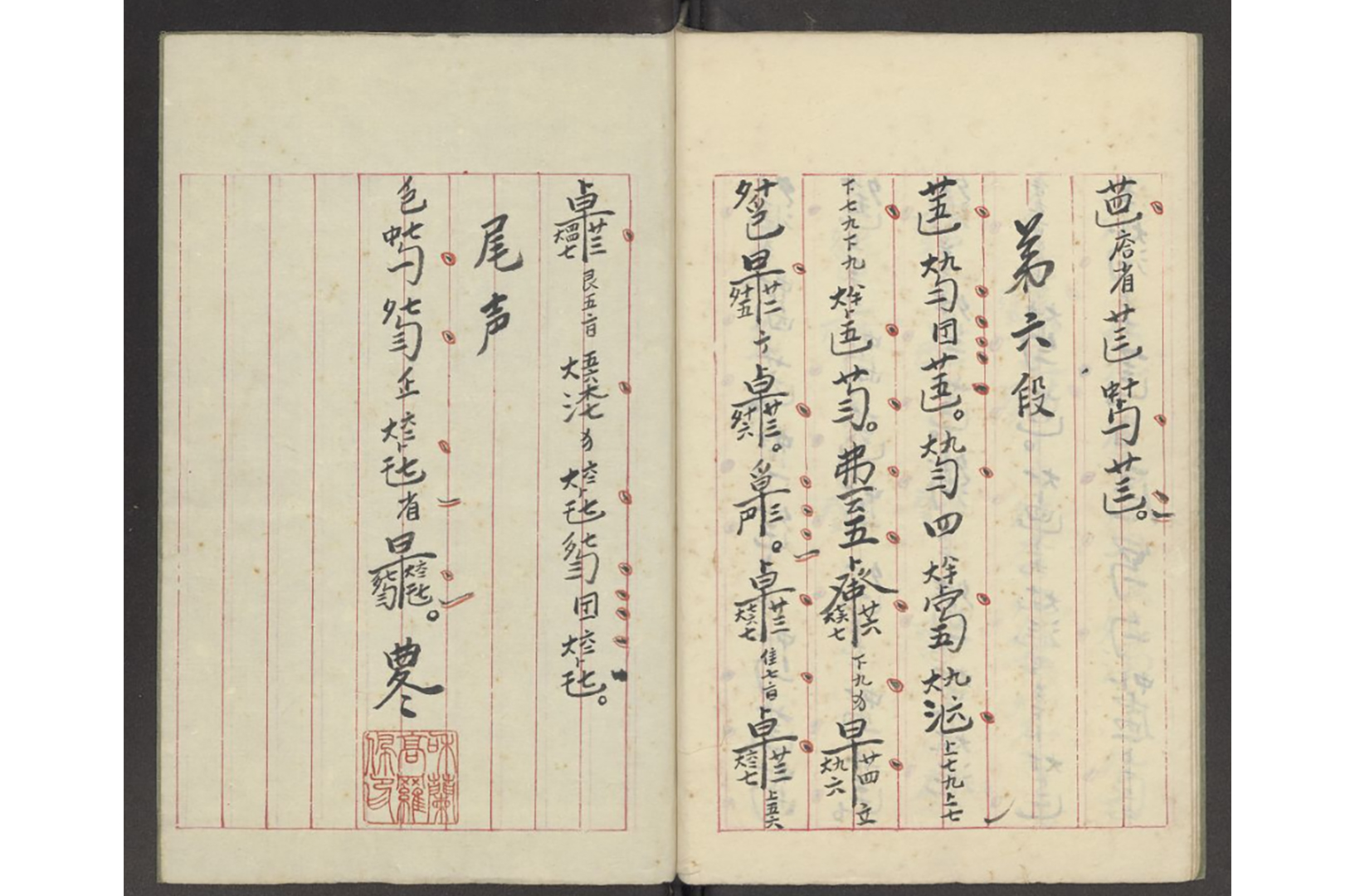
Music scores for lute, hand copied by Robert van Gulik. -
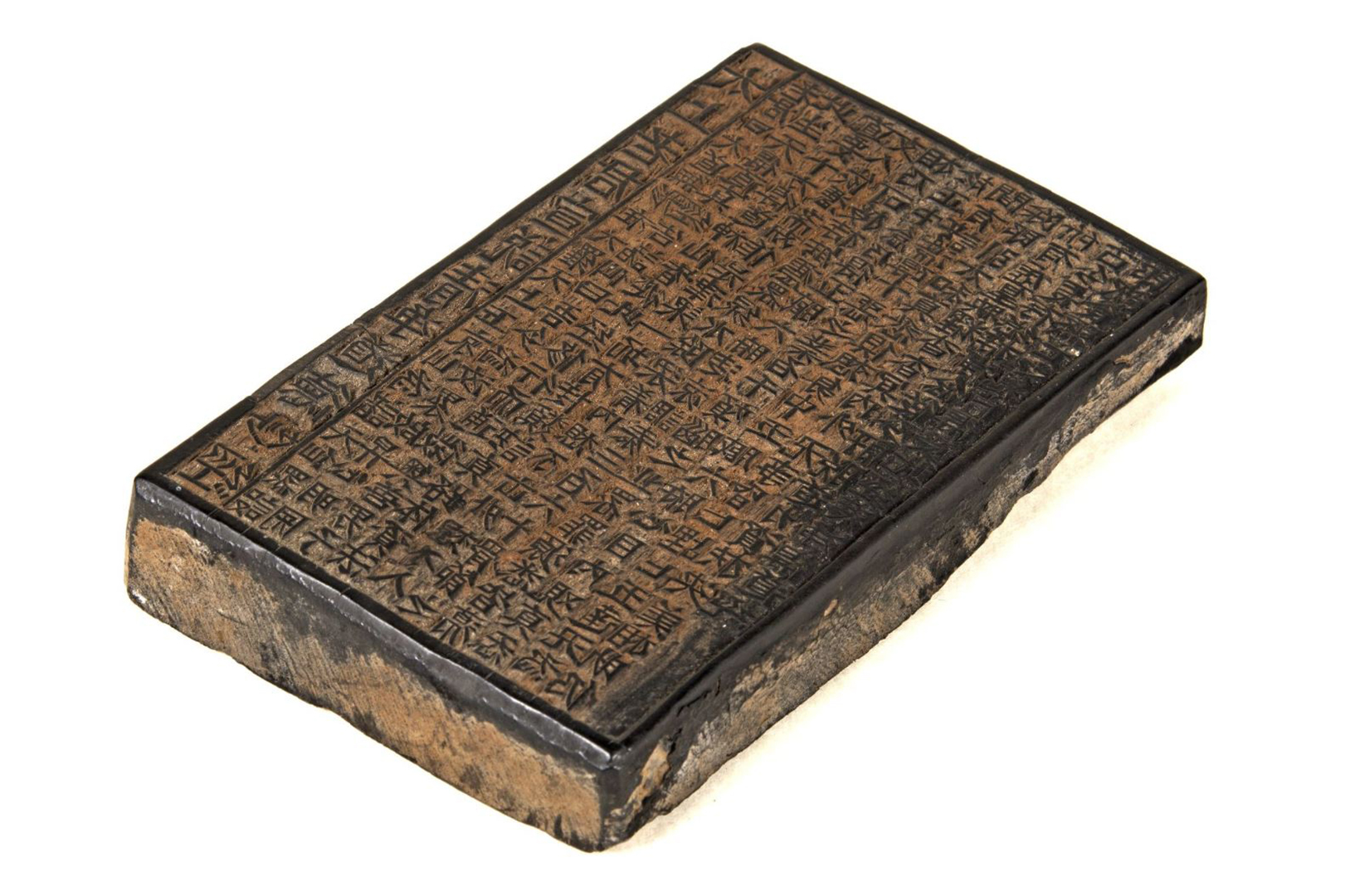
Woodblock used to print Chinese prayers, religious or moral books, or other devotional material. -
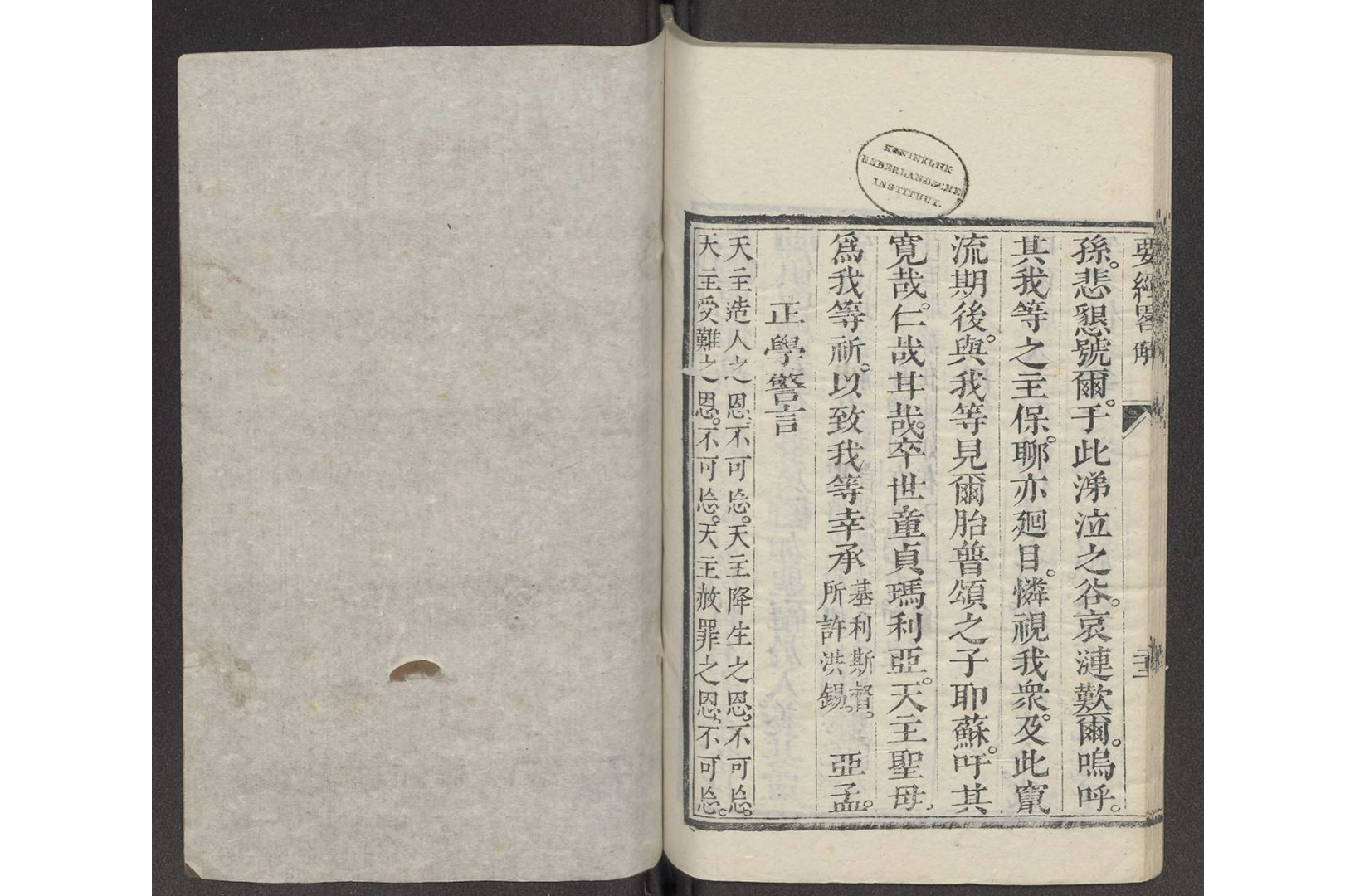
Catholic catechism written by the Augustinian Tomás Ortiz (1705). -
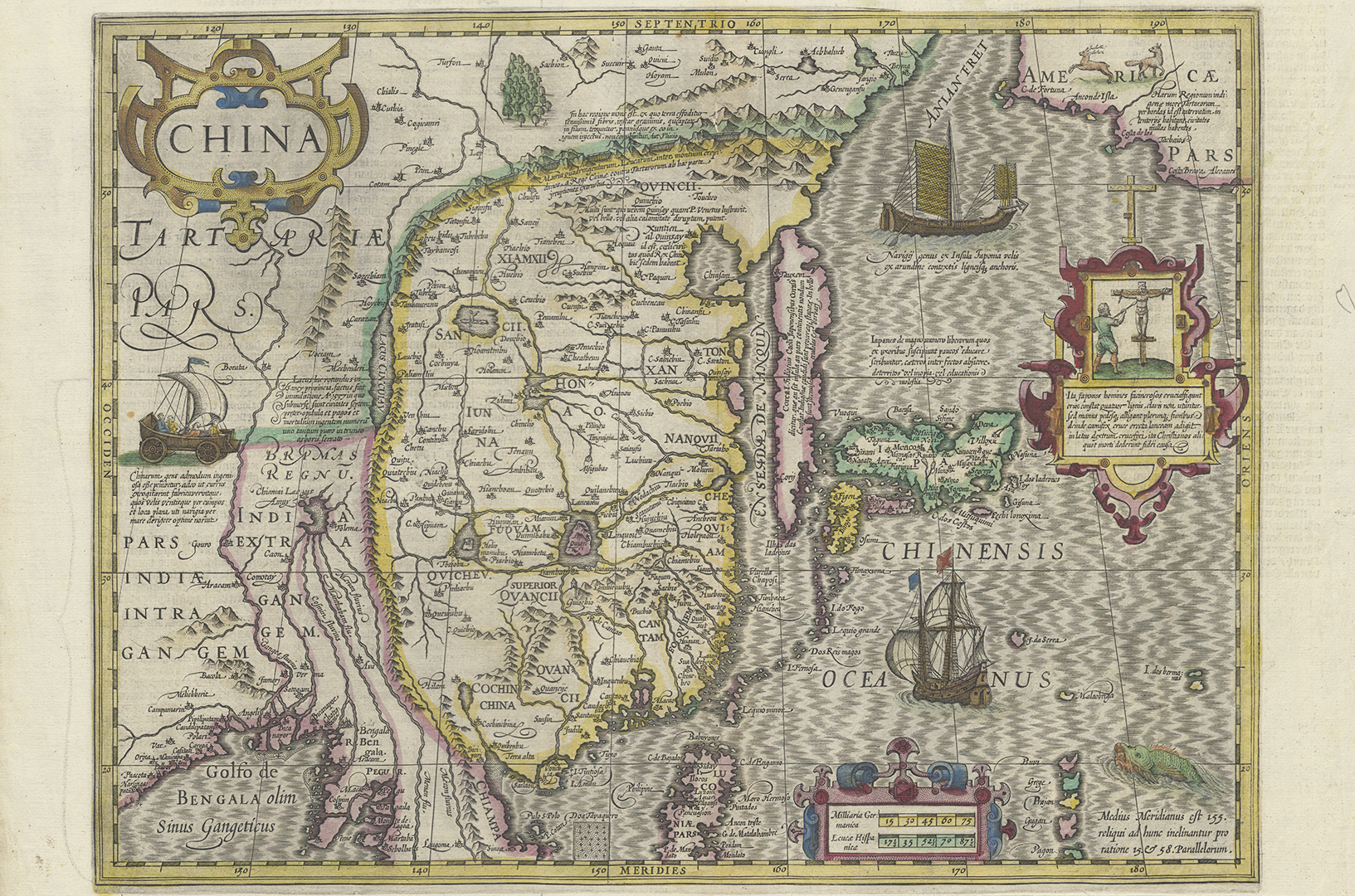
Map of China from the Mercator-Hondius-atlas. -
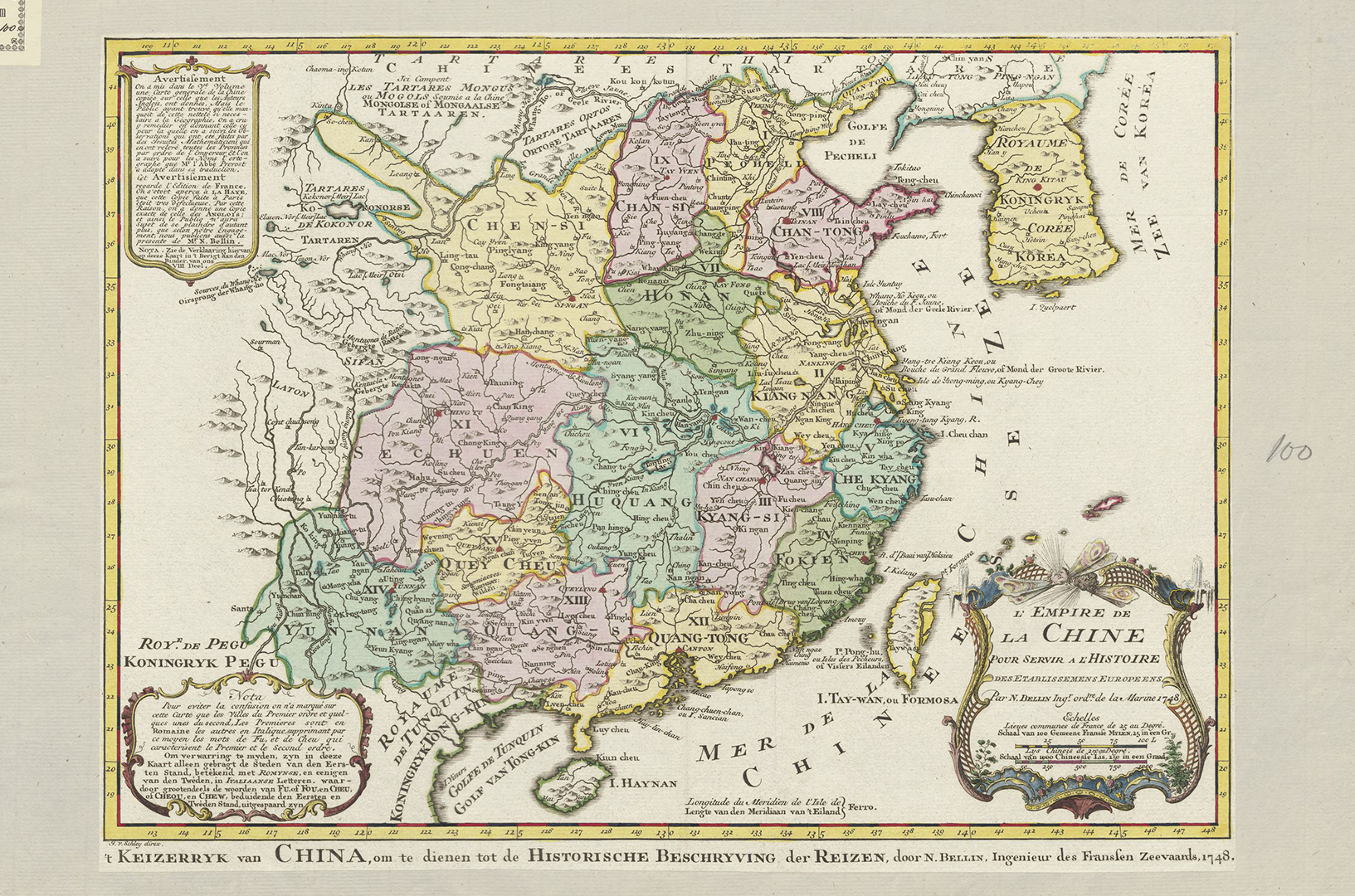
Jean Baptiste Bourguignon d'Anville (1697-1782) used maps prepared by Jesuit missionaries commissioned by the Emperor, who ordered a survey in 1708-1706. -
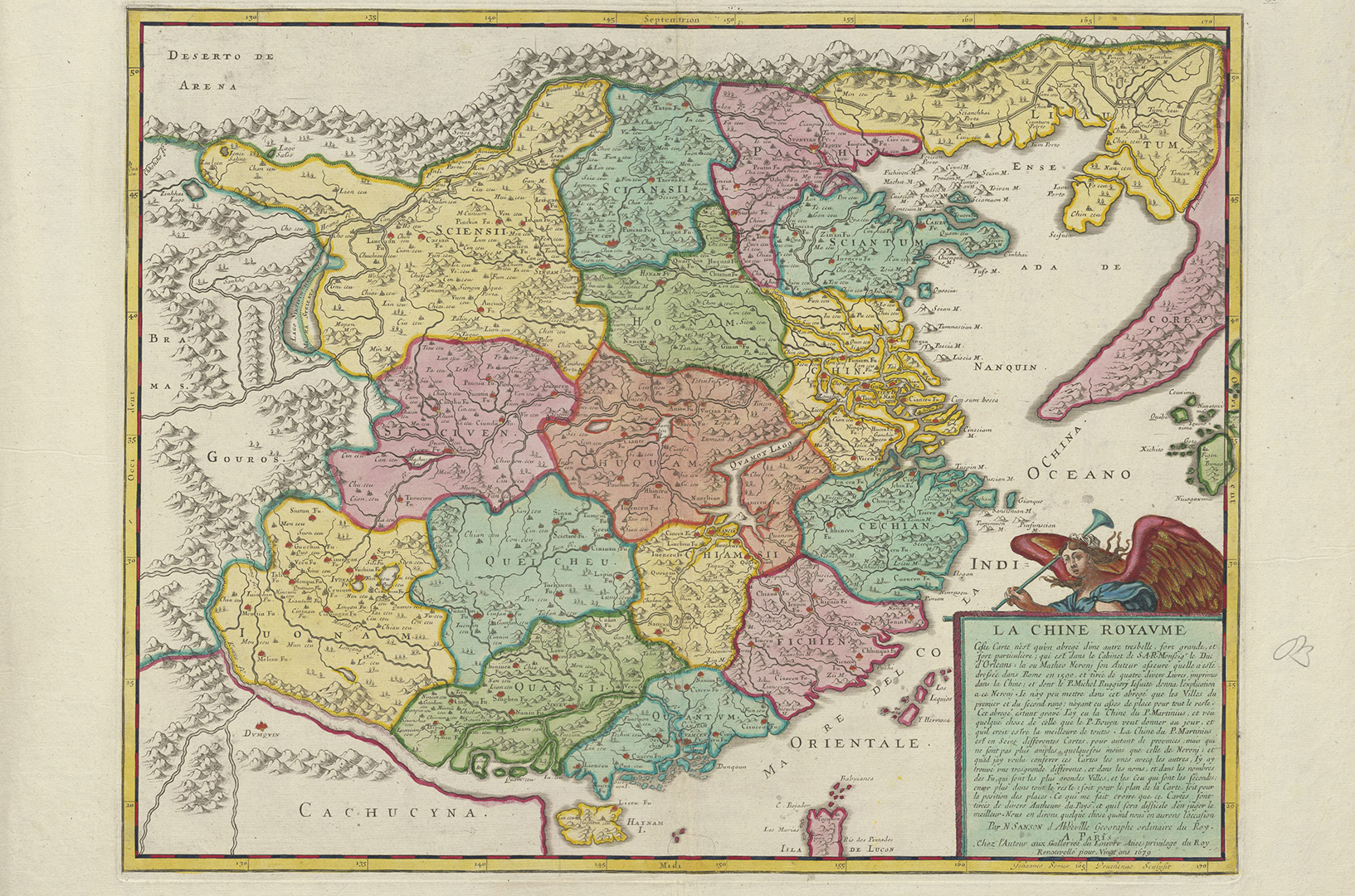
French map, based on a Chinese indigenous example, copied by Jesuit Matteo Ricci and brought to Rome in 1590.
Pagode Project
Pagode is an innovative project co-financed by the European Union under the Connecting Europe Facility (CEF) Programme, initiated by a consortium in April 2020 to support cultural institutions and other public and private partners to make Chinese heritage held by European cultural organisations more accessible and visible. Approximately 10.000 objects have been digitised and made digitally available via the Europeana platform and the metadata records of a further 20.000 objects already part of the digital Europeana collection have been improved to enhance search results and user experience on the platform. All objects from the UBL collections available in Europeana have also been made available in the Leiden Digital Collections.
"Our international team included members from Belgium, Finland, Germany, Greece, Switzerland, Poland, Slovenia, and the Netherlands. We all took up the challenge to complete the Pagode Project despite setbacks due to the coronavirus. It was a truly European effort to make parts of these Chinese heritage collections in Europe more visible and accessible.”
- Marc Gilbert, Curator Chinese Collections
UBL Chinese Special Collections
The Leiden University Libraries’ Chinese Special Collections hold diverse documents and objects from and related to China. Focal point of the collection is the private library of Dutch diplomat, sinologist, and writer of detective novels Robert Hans van Gulik (1910-1967). The collections hold much documentation on interaction between China and the West, including personal archives and book collections of nineteenth-century Dutch interpreters, and Chinese protestant works written before 1855. The Go Collection, the private Chinese library of a Chinese businessman in the Dutch East Indies, is a rare example of a Chinese private library that was wholly preserved. An example of modern Chinese literature in the collections is the internationally unique collection of unofficial poetry journals from the People’s Republic of China, which is currently being made digitally accessible.
